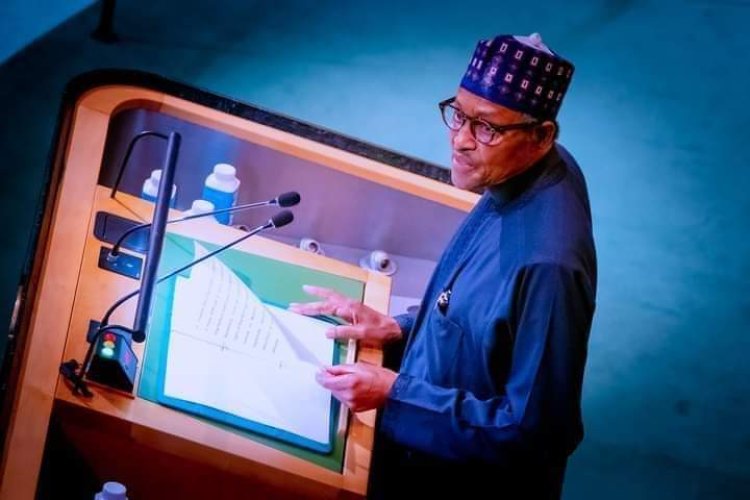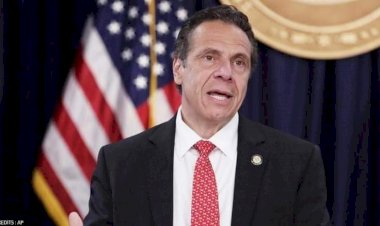Climate Change: Buhari Reiterates Nigeria’s Strong Commitment To Energy Transition Plan

President Muhammadu Buhari Wednesday in New York restated the commitment of the Nigerian government towards ensuring that there is a rapid and strategic transition to renewable energy in response to the world-wide efforts for the preservation of the environment.
Speaking at a Leaders’ Closed-Door Meeting on Climate Change convened by the Secretary General of the United Nations, Mr. Antonio Guterres, coming before the commencement of the COP27 in November this year, on the sidelines of the United Nations General Assembly, President Buhari stressed that his administration had, in august this year, launched a home-grown, data-backed, multi-pronged energy transition plan, which is the country’s framework in achieving net-zero emissions by 2060.
Highlighting some of the details in the plan, the President said that through the use of emerging technologies and alternative fuels such as hydrogen, bioenergy and waste-to-energy, a pathway would be created for accelerated decarburization of energy systems and harnessing of new and diverse technologies towards low carbon development while aligning to our broader developmental aspirations in a fair and just manner.
Speaking further, the Nigerian leader said, “the plan also sets out a timeline and framework for the attainment of emissions reduction across five key sectors: power, cooking, oil and gas, transport and industry,” adding that, “gas will play a critical role as a transition fuel in Nigeria’s net-zero pathway, particularly in the power and cooking sectors.
“The clean energy goals of the plan include modernizing the power sector with large-scale integration of renewable energy, enhancing energy efficiency and conservation; and is expected to generate 250 gigawatts of installed energy capacity with over 90% made up of renewables.”
Expressing his confidence that the plan would put the nation on the path of prosperity, President Buhari said that a careful implementation would create significant investment opportunities as it will engender the establishment and expansion of industries related to solar energy, hydrogen and electric vehicles.
“It will guide Nigeria’s rapid transition to renewable energy and result in significant job creation with up to 340,000 jobs created by 2030 and up to 840,000 jobs created by 2060 driven mainly by power, cooking and transport sectors.”
He commended Egyptian President Abdel Fattah El-Sisi for his tireless efforts in the preparations for the COP27 and assured him of the support of the Nigerian Government.


















































